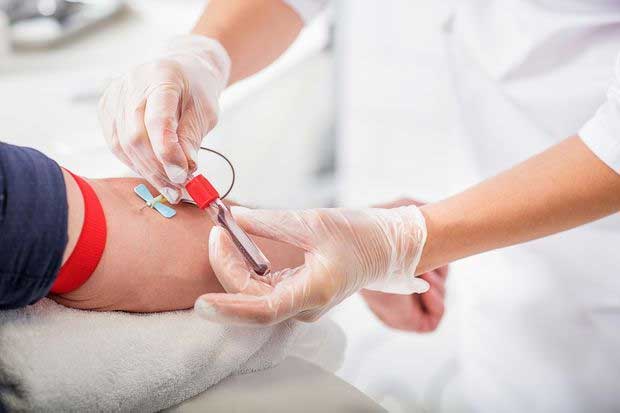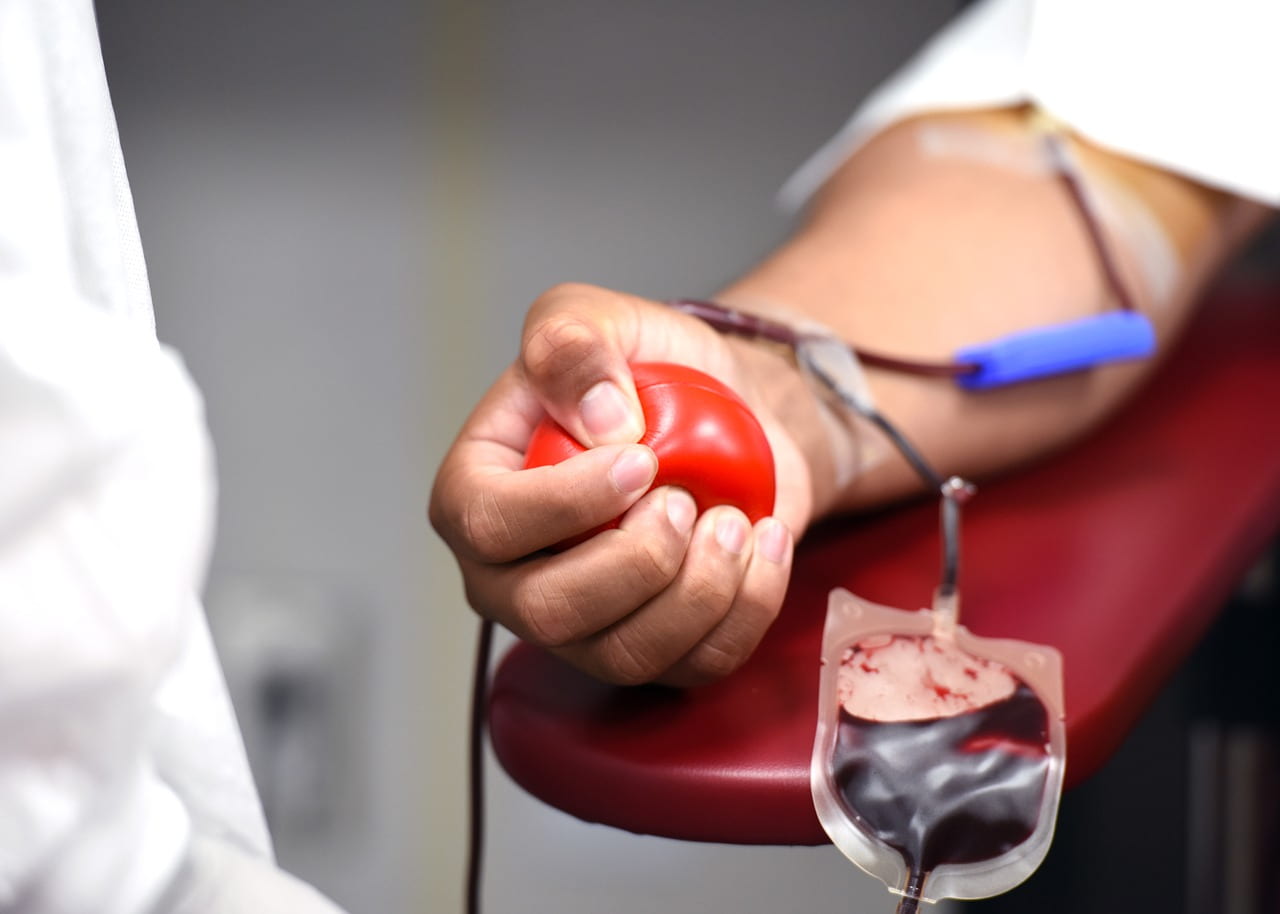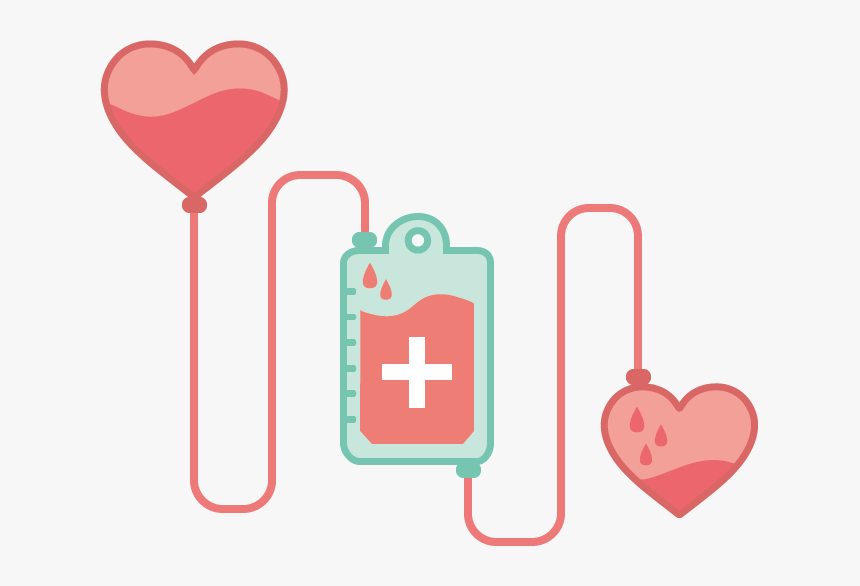Why Should I Donate Blood?

You might think that donating blood is most important during a natural disaster or other major event where many people are injured. But hospitals everywhere always need donated blood. In fact, each year blood transfusions help save 4.5 million lives.
Am I Able to Donate Blood?
Most people over the age of 17 can donate blood. In some states, you can donate blood at age 16 if you have a parent′s permission. The American Red Cross requires donors to:
- Weigh more than 110 pounds
- Be in good health
- Be screened for some medical conditions, such as anemia
- Wait 56 days between each time donating blood
According to the American Red Cross, there′s a 97% chance that someone you know will need a blood transfusion at some point. One donation could save up to three lives. And a single accident victim may need as many as 100 pints of blood.
Things to Know on Your Donation Day
When donating blood, take these steps to make sure you stay safe and healthy:
- Drink an extra 16 ounces of water or other nonalcoholic beverage before your appointment.
- Eat a healthy meal, avoiding fatty foods like hamburgers, fries, or ice cream.
- Wear a shirt with sleeves that you can roll up above your elbows.
- Have somebody else drive you to and from the blood bank.
- Have something to eat and drink after donating. Most blood banks will have snacks for you when you′ve finished giving blood.
When you get to the blood bank, you′ll answer a few questions about your medical history. You′ll also be asked about any recent travel, infections you may have, and medicines you take. Your answers help the blood bank staff know if you are healthy enough to give blood. Then they′ll check your temperature, pulse, blood pressure, and blood count.
What Happens During and After Donating Blood?
The actual donation part of giving blood usually takes about 10 minutes, and is a lot like getting a blood test.

- You will either be seated or lying down.
- A technician will find a vein in your arm by tying a rubber tube around your upper arm, and clean the skin over the vein with rubbing alcohol.
- The tech will insert a needle into your vein. You may feel a small prick, kind of like getting a shot.
- Your blood will flow into a tube connected to the needle and into a bag, where it′s kept until it′s needed.
You should tell the technician helping you if:
- The sight of needles bothers you.
- The sight of blood bothers you.
- You feel nauseated or lightheaded.
This will help prevent a fainting spell, and keep you safe while you give blood.
After you donate, you may feel a little lightheaded or dizzy. These side effects usually go away after a few minutes. Be sure to drink extra fluids during the 24 hours after you donate. If you still feel unwell after that, call your doctor or have someone else take you to the nearest emergency room.
All donated blood is checked for viruses (such as HIV, hepatitis B and hepatitis C, syphilis, and West Nile virus) and bacteria. Any blood with viruses or bacteria is destroyed. If your donated blood has any of these germs, the blood bank will notify you.
Donating blood
Each day, thousands of people need donated blood and blood products to keep them in good health or allow them to stay alive.
Each day, thousands of people need donated blood and blood products to keep them in good health or allow them to stay alive.
If a person′s blood levels fall due to an accident or illness, or if their blood is not functioning properly, there will not be enough oxygen or other nutrients to maintain their vital organs.
Donating whole blood can help these people.
A similar process to whole blood donation is apheresis. This provides other blood components, such as platelets. A donation of platelets can help people who have issues related to clotting. It may also provide antibodies to help fight a disease, such as COVID-19.
Giving blood can be a life saving action, but it may also have benefits for the donor. In this article, learn about the effects of giving blood.
- have internal or external bleeding due to an injury
- have sickle cell disease or another illness that affects the blood
- are undergoing cancer treatment
- are undergoing surgery, such as cardiovascular or orthopedic surgery
- have an inherited blood disorder
- are undergoing a transplant
- need treatments involving plasma or other blood products
For many people, blood donation offers many health benefits with few risks. The strict regulation of blood banks means that a donor can give their blood or plasma safely in the United States.
Donated blood can save the lives of people in need. However, according to some medical professionals, it may also benefit the donor.
The sections below will look at some benefits for the donor in more detail.
Each person who donates blood completes a simple physical examination and blood test before giving blood.
These are not in-depth tests, but they may help identify
unknown health concerns, such as anemia or high or low blood
pressure.
The test will check the person′s:
- blood pressure
- body temperature
- heart rate
- hemoglobin, or iron, levels
If the test reveals a problem, the person will not be able to donate blood. However, the results could be a first step toward seeking treatment.
Donating blood is safe, as long as the center follows the standard guidelines.
The U.S. and many other countries have strict regulations to
ensure safety. The FDA and American Association of Blood
Banks (AABB) monitor blood banks for this purpose.
Safety
precautions they take include:
- screening donors for existing health conditions
- using new needles for each donation
- having professional staff on hand
- providing monitoring and refreshments to ensure a safe recovery
If the test reveals a problem, the person will not be able to donate blood. However, the results could be a first step toward seeking treatment.

